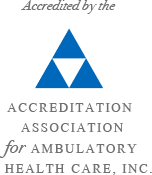Hemorrhoid Treatments in NYC
 Hemorrhoids are a very common problem, with nearly three out of four adults having them at some point. As you age, you’re even more likely to get them than you are during your younger years.
Hemorrhoids are a very common problem, with nearly three out of four adults having them at some point. As you age, you’re even more likely to get them than you are during your younger years.
In this blog, the gastroenterologists at Gramercy Park Digestive Disease Center (GPDDC) explain what types of hemorrhoid treatment are available.
What are hemorrhoids?
Hemorrhoids (also known as piles) are swollen and distended veins in the lowest part of your rectum and anus. They’re similar to varicose veins in your legs.
They can be in two different locations:
- Internal – inside the rectum
- External – under the skin around your anus
In addition, blood can pool in an external hemorrhoid and cause a clot (thrombus) near your anus. This is known as a thrombosed hemorrhoid.
What are the symptoms?
Hemorrhoids can have the following symptoms:
- Bleeding when you have a bowel movement
- Itching or irritation near your anus
- Pain
- Swelling around your anus
Different types of hemorrhoids are associated with certain symptoms. Internal hemorrhoids are often painless, but they can cause bleeding. External piles are likely to turn hurt and also bleed, and thrombosed hemorrhoids can cause severe pain, swelling, and inflammation.
What are the causes?
Hemorrhoids can develop due to the following:
- Straining while you're making a bowel movement
- Sitting for long periods of time on the toilet
- Obesity
- Pregnancy
- Ongoing diarrhea or constipation
- Low-fiber diet
In addition, you’re more likely to develop hemorrhoids when you’re older, because tissues around your rectum and anus can weaken.
What are some effective hemorrhoid treatments?
You can sometimes help mild cases of hemorrhoids get better with at-home remedies such as the following:
- Warm sitz baths – Several times a day, sit in a few inches of warm water for 15 minutes or so.
- Use witch hazel
- Use over-the-counter hemorrhoid creams
- Place a cold pack on the tender area
- Eat a high-fiber diet or use fiber supplements
- Drink plenty of water – around 7 or 8 glasses a day
If you don’t treat your hemorrhoids or if home remedies aren’t successful, your piles could become more severe or become prolapsed. In some cases, they can be treated with rubber band ligation. Also known as band ligation, this procedure can be used to treat internal hemorrhoids to deprive them of their blood supply so that they shrink and fall off.
A gastroenterologist can determine whether band ligation is needed, based on the location and severity of your hemorrhoids. If this procedure is recommended, you’ll be given a local anesthetic and perhaps a sedative. Your doctor will use an instrument to place a small rubber band around the base of the hemorrhoid.
Why Gramercy Park Digestive Disease Center (GPDDC)?
Our practice is a New York State-certified Ambulatory Center that specializes in gastroenterology services such as hemorrhoid removal. We offer the latest endoscopic procedures and are committed to delivering the highest level of healthcare, including hemorrhoid treatments, in a convenient, compassionate, cost-effective manner.
If you need hemorrhoid treatments, make an appointment today with GPDDC. If left untreated, they could get worse and cause more discomfort and may also become prolapsed.


